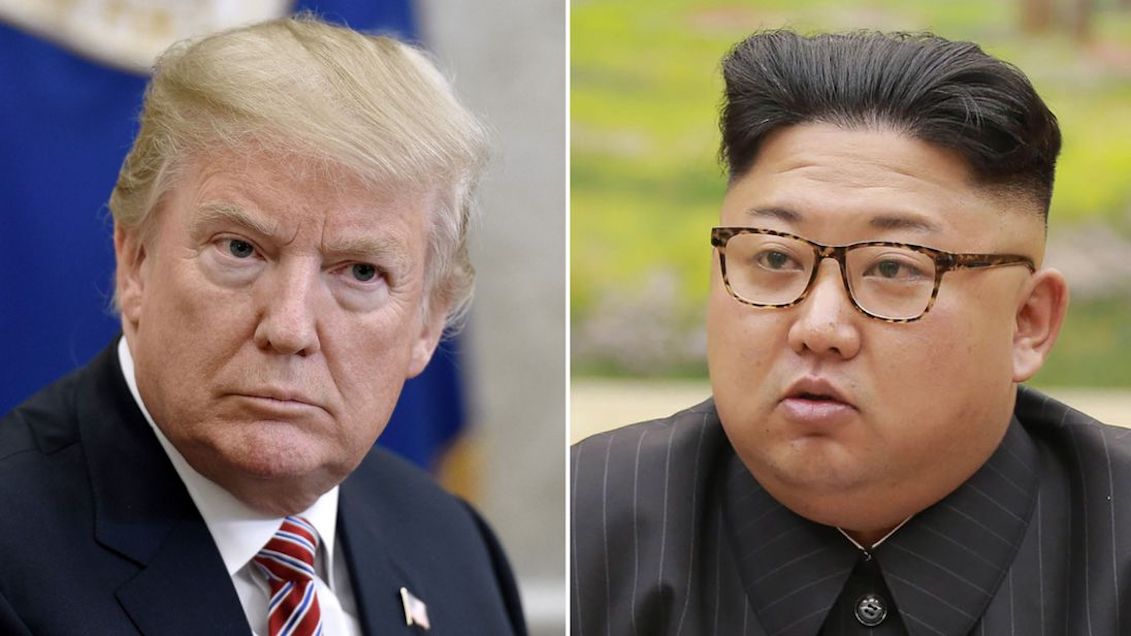
Donald Trump meets Kim Jong-un: 5 potential dangers
The historic planned meeting between Donald Trump and Kim Jong-un is one of the most delicate situations in world politics, and putting two such sensitive…
After receiving a letter from the North Korean president, the U.S. president announced on Friday that the historic meeting between the two leaders still stands and will be held on June 12. As pressure mounts, many anticipate that Donald Trump's instability and Kim Jong-un's paranoia could be the recipe for disaster.
So, what exactly could go wrong?
The arrangement of the meeting has had planners on both sides intensely analyzing protocol for fear of jumping key details.
Among "difficult diplomatic negotiations," the delegations—which are already in Singapore and have been since last week—are stressing over the importance of the chair granted to the North Korean leader.
"Typically, the person with the highest status enters the summit venue last and sits farthest from the door," a Japanese official told the New York Times.
While the most logical solution would be to find a setting with two doors, President Trump is known for his habit of breaking protocol, just as Kim is famous for his sensitivity to the slightest of rebuffs.
The history of the North Korean dynasty is one mired with attacks and assassinations to reach power. Since the assault on the Blue House in 1968 against South Korean President Park Geun Hee, six attacks have been carried out between the two Koreas, and Kim is known for his paranoia about it.
One only need remember the image of 12 of his bodyguards jogging in formation next to the vehicle that transported him to the meeting with the South Korean leader on April 27.
The slightest hint of threat could fracture any attempt at conciliation.
During his tenure, President Trump has made his handshakes a distinguished brand (just ask French President Emmanuel Macron). But touching Kim is "virtually unthinkable," even for his fellow citizens.
Although during his meeting with the South Korean president the cameras witnessed an unusual hug, the “alpha” imposition "of Donald Trump’s gestures could also offend the North Korean leader," explained POLITICO.
RELATED CONTENT
According to POLITICO, summits for such important and delicate negotiations are often anticipated with years of discussions between groups of aids that prepare the ground for the final meeting between the two leaders. But Trump and Kim "have turned that process upside down.”
This new game in diplomacy involves the restructuring of all planning, including the determination of "what" and "how" both leaders will communicate.
Considering that no previous statements have been issued and that the nature of the result will depend precisely on what happens at the meeting, it is most likely that no agreement will be reached.
For those who don’t remember, the only advantage that North Korea has in this meeting is its nuclear warheads. The impoverished country has reluctantly accepted the meeting mainly because international sanctions have deeply eroded its economy.
That is why North Korea has often pushed "other governments to pay its expenses when its officials travel abroad," the Times explained. During the Olympic Games in Pyongyang, for example, it was the government of South Korea that was responsible for paying up to $225,000 in expenses for the North Korean delegation.
And in the case of the meeting in Singapore, Kim has spared no effort to request that his delegation stays at the Fullerton, a "magnificent neoclassical hotel near the mouth of the Singapore River, where only a presidential suite costs more than $6,000 a night," explained the Washington Post.
Knowing the U.S. president, it was not surprising that he displayed his wealth and suggested paying for the costs, but diplomats who are experts in the issue have warned that this would be an offense for the North Korean leader.
The International Campaign to Abolish Nuclear Weapons (ICAN), however, offered to pay the cost of the meeting using funds from its 2017 Nobel Prize. If no agreement were reached, this would be a sad waste of money.











LEAVE A COMMENT:
Join the discussion! Leave a comment.